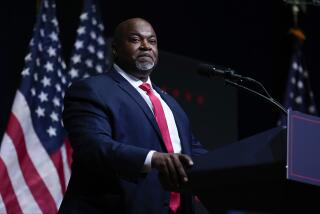A Familiar Theme That Poisons Russian Politics
MOSCOW — First it was the Jews. Then the Romanovs, the nobility and the kulaks. After 1991, it was Lenin and the communists. Now, it seems, it’s the Jews again. Like history in the Karl Marx aphorism, Russian hatreds repeat themselves. Luckily, the rest of that saying also applies, for Moscow’s most recent bout of anti-Semitism is a case of history repeating itself not as tragedy, but as farce.
The October Revolution of 1917, with its attractive slogans of internationalism, multiculturalism and ethnic equality, was a liberating time for Russian Jews. It didn’t last long. With Lenin’s death in 1924, Stalin embarked on another round of chest thumping for “Russia’s Greatness.”
This chauvinistic period, however, lasted for more than six decades and was marked by quotas for all those with not-quite-Russian-sounding names. Jews in particular were restricted in their numbers at universities, research institutes, the foreign service and in government.
The August Revolution of 1991 appeared to undo much of the anti-Semitic nastiness. Other nationalities, including people of Jewish origin, began to appear in the political spotlight: Anatoly B. Chubais, Alexander Y. Livshitz, Boris Y. Nemtsov, Grigory A. Yavlinksy and Sergei V. Kiriyenko among the reformers; Boris A. Berezovsky and Vladimir A. Gusinsky among the new plutocrats; Vladimir V. Zhirinovsky among the ranting would-be fascists. Russia, freed from its ethnic and mental straitjacket, was letting its most resourceful, entrepreneurial, vibrant and, yes, cynical, citizens climb to the top.
With so many “different” names bestriding society, it is no surprise that some Russians, reared on the endemic paranoia of communism, smelled a conspiracy. The hysterical Zhirinovsky, denying his own roots, said, “Jews are the most powerful, the most talented and the richest” and so were able to take over in 1917 and again after 1991. Communists, too, insisted that the Jews were conspiring once again to ruin Russia.
So Gen. Albert Makashov’s recent remark that “the Russian government should impose quotas on hiring non-ethnic Russians” was surprising only for the time it took communists to trot out this old line and because the echo was so feeble. The two leading “nationalist” candidates for president in 2000--Alexander I. Lebed and Moscow Mayor Yuri M. Luzhkov--were conspicuous in not picking up this old battle cry.
That the Communist Party leader Gennady A. Zyuganov didn’t immediately rebuke Makashov and that the Duma took a while to pass a resolution against stirring up ethnic conflicts (mentioning Makashov by name) probably reflects mental inertia rather than outright support. For Duma members, the majority Communist, there yet remains the notion that only they represent the country.
Here the old Leninist idea is in play: The party isn’t just part of society, it is society. As for Zyuganov, he couldn’t publicly disagree with a party member, again on hoary Leninist grounds: Division within the party will bring an end to the party.
What is surprising is the reaction at home and abroad to Makashov’s tantrums. Over more than a month, TV shows and newspapers in Russia and much of the West have been discussing, condemning and thus reinforcing the incident.
This focus has, however, smoked out what may be the real target of communist rage: the media. Another Communist Duma deputy, Alexander Kuvaev, the first secretary of the city of Moscow’s Communist organization, called for the formation of a special organization to deal with journalists who “sold themselves to the regime and have become the enemies of the people.”
This time Zyuganov reacted quickly, listening to the voice of reason among his party peers, and issued a resolution that “prosecution is not the tool communists should exercise, and the Communist Party is the party of the future, not the party of revenge.”
The saddest part of this rhetoric of hate is not that a pogrom is imminent but that mind-sets have changed so little for so many here. People continue to think in ways typical to authoritarian/totalitarian regimes, where blaming others is the standard escape for your own inadequacies and where anyone who is even the slightest bit different may be an enemy.
So the search for scapegoats proceeds, not in earnest and with energy, but as a reflex, the death throes of the old ways of doing things. The cries of the anti-Semites belie the fact that the man the Communists now support as prime minister, Yevgeny Primakov, is himself of Jewish origins. What is important is not the rants of men like Makashov and Kuvaev, but the ditherings of Zyuganov and the general silence of the Duma--a sign that, at the millennium, even the communists recognize that the vulgar old tricks are not enough.
More to Read
Sign up for Essential California
The most important California stories and recommendations in your inbox every morning.
You may occasionally receive promotional content from the Los Angeles Times.










